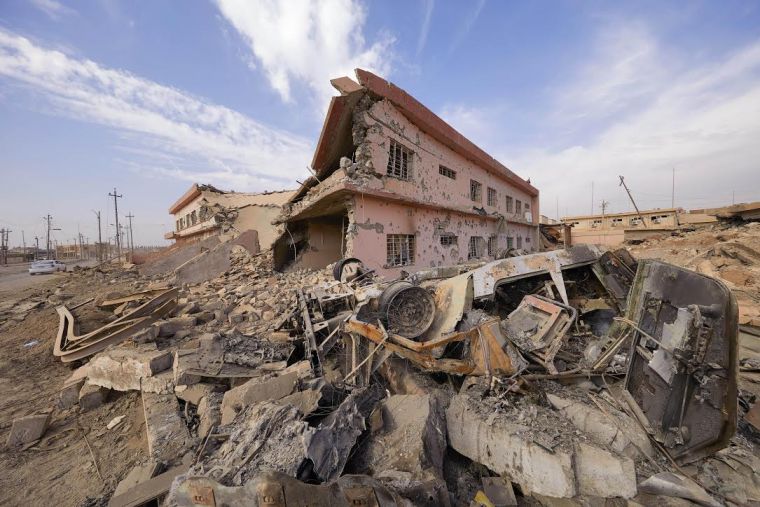'Olive Tree' ceremony in Iraq marks start of programme to rebuild Christian homes

Rebuilding is to start on some of the first homes belonging to Christian families that were destroyed by Islamic State in Iraq.
There will be a Bible-style 'Olive Tree' ceremony on Monday in the historic Nineveh Plains, a traditional Christian homeland that was devastated by atrocities perpetrated by ISIS.
The ceremony will mark the start of a programme to rebuild the first 100 houses to be destroyed destroyed houses in the villages of Bartella, Karamlesh and Qaraqosh.
While hundreds of thousands of Christians have fled the country or are hiding out in safe places in the mountains and desert, some are trickling back as ISIS is forced out.
A survey by Aid to the Church in Need (ACN), the Catholic charity for persecuted and other suffering Christians, calculated that around 12,000 homes need to be rebuilt.
At the ceremony, olive trees will be given to the house owners to plant near their homes. There will be prayers for them as they literally put back roots in the villages where they were born in, in a first step towards reaping fruits of peace and reconciliation.
Father Andrzej Halemba, acting chairman of the Nineveh Reconstruction Committee, of ACN, described the ceremony as an 'historic and unrepeatable occasion for the future of Christianity in Iraq'.
He said: 'By starting work on these first three reconstruction sites, we are hoping to send a clear signal to the thousands of Christian families who were driven from their homes on the Plains of Nineveh and who are now living in makeshift conditions in Erbil and other towns of Iraqi Kurdistan.
'This is a decisive historical moment. If we now miss the opportunity to help the Christians return to their homes on the Plains of Nineveh, these families might well decide to leave Iraq forever. That would be an enormous tragedy.
The presence of the Christians in this region is of vital importance, and not only historically, but also politically and culturally.
'The Christians represent a bridge of peace between the various Muslim groups that are fighting each other – they make a crucial contribution to the educational system and are respected by all moderate Muslims.'
Representatives of the three main Christian Churches in the region, the Syriac Orthodox Church, the Syriac Catholic Church and the Chaldean Church, will be present at the olive tree ceremony.
A survey of displaced Christian families by ACN in March revealed that 41 percent are committed to returning to their own homes in the Nineveh Plains. A further 46 percent are considering returning.
This is a drastic change from the charity's November 2016 survey in which just 3.3 percent of families indicated they would seriously consider returning to their villages.
Father Halemba said: 'These figures are a snapshot of the historical dilemma facing Christianity in Iraq at the present time.'
The cost of the rebuilding programme is estimated to be more than US$250 million (£158 million). ACN has already made 450,000 Euros (£381,000) available.
Father Halemba said: 'To all our Christian brothers and sisters in the West we ask not only their financial support but also that they support with their prayers the courage of the thousands of Iraqi Christians who have made the decision to return to their villages and stay on in Iraq.'
Since late summer 2014, ACN has been providing emergency aid including food for around 12,000 displaced families in Erbil who were forced to flee from Mosul and the other towns and villages in the Nineveh Plains.











